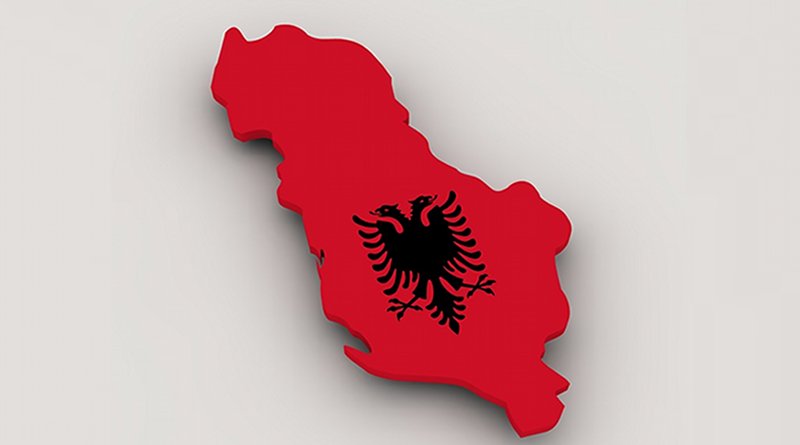The Misleading Influence Of Foreign Ambassadors In Albania – OpEd
By Peter Tase
In the realm of international affairs Tirana emerges as the atypical example of housing foreign diplomats that unprecedently, constantly interfere in the domestic public policies of Albania and Albanians in the Balkans. In looking at other European nations, it is difficult to find a behavior of Foreign Ambassadors that is similar or equal to the Foreign ambassadors operating in Tirana; an erroneous trend that is brewing a recipe to disaster.
The Albanian nation, in the heartland, Kosova and North Macedonia; does not suffer from historical unconsciousness nor has it a bipolar disorder when electing principal representatives into government offices. Surprisingly, foreign ambassadors representing the European Union, European Commission and other nations across the Atlantic, reflect a poor judgement as it pertains to their understanding of Albanian society, pressing challenges of Albanian democratic Institutions and fail to grasp that Tirana has become Europe’s capital of voting fraud allegations, where the current regime of Edi Rama had shown a full control, manipulation of voting polls during the national parliamentarian elections of April 25th 2021.
Foreign envoys’ intermingling in Albania’s domestic affairs has become an erroneous trend that has seriously affected the standard of democratic institutions inside Albania as well as diminished their professional credibility within the public in Albania.
Albanian state dignity and its people must be respected by all those who diplomatically represent their countries in Tirana’s Elbasan Avenue. Constant and ever-growing interference in Albania’s internal affairs is a clear violation of the Vienna Convention on Diplomatic Relations of 1961 and further encourages Tirana’s kakistocracy and Edi Rama’s club of kleptocrats to plunder the riches of Albanian people.
Western Foreign Envoys in the Balkans, have become the architects of eliminating the opposition parties or substantially reducing the political leverage of main opposition parties; the typical example of this proclivity is the Republic of Albania, where the Democratic Party of Albania, under the leadership of Lulzim Basha has demonstrated its full inexistence and obvious absence from the political landscape.
The nation of Albania is not wealthy; however this has no correlation with its level of intelligence; history has shown that in June 23rd, 1991, the gigantic welcoming events for Secretary of State James A. Baker III, in the streets of Tirana; remains until today the most enthusiastic crowd that has ever received a US Secretary of State in any country around the world.
Over 300,000 Albanians while chanting “U.S.A.! U.S.A.!” were gathered into the main square of Tirana to hear America’s top diplomat emphasize that “freedom works” and encouraged the Albanian people to move forward toward democracy.
Albanians are not incompetent; they elect public officials based on their political inclination and foreign interference is not welcomed, diplomatic engagement in these matters always produces a backfire effect.
It is evident that Albanians in Albania and Kosovo are very smart in electing their representatives, although foreign envoys have employed every tool against Albin Kurti in Kosovo and against high democratic standards in Albania. While Albin Kurti was elected for the second time in Kosovo, contrary to the desire of western diplomats; in Albania we have the reelection of Edi Rama for the third time, a somewhat successful outcome in the eyes of Open Society’s diplomats and a despicable consequence because western envoys have allowed and certified a one-party electoral process in the heart of Europe. Albania’s democratic transition has turned into a one-party system, or a Prime Ministerial Republic; in the last decade democratic processes have eroded under the nose of the very same diplomatic corps that is scoffing at Albanians.
Going after the Former Prime Minister and Former President of Albania, Prof. Dr. Sali Berisha is a recipe for disaster and foreign ambassadors are practically shooting themselves in the foot.
Dr. Berisha becomes even more popular when western diplomats – concocting plans with Edi Rama and Lulzim Basha – attempt to oust him from Tirana’s political landscape. The frustration among Albanians becomes even greater when observing that many drug lords and self-proclaimed businessmen that have amassed large fortunes thanks to their strong ties with the current Government, are not investigated from the Attorney General’s office nor publicly identified by western diplomats. The latter act as if there are no connections between the organized crime and the very few wealthy businessmen roving freely in Tirana’s streets. These unprofessional diplomats must be convinced that Dr. Berisha and his bright team are the future of Albania; while Basha and Rama will be hanged in the nation’s history books as traitors and as the principal architects that ruined Albania’s democracy in less than a decade.
Albanians cherish the genuine trust and sincere support from international partners; however the current western diplomats are tarnishing this trust and sincerity that was built immediately after Secretary Baker’s official visit to Albania. He was a visionary statesman that welcomed Albania into the democratic world; today we are witnessing Albania’s descent into the abyss of kakistocracy and single party regime; fomented along the segment of Elbasan Avenue.
Perhaps, western diplomats must delve into the concept of BESA in Albanian culture, before making a fool of themselves while addressing the highly intelligent Albanian public.

